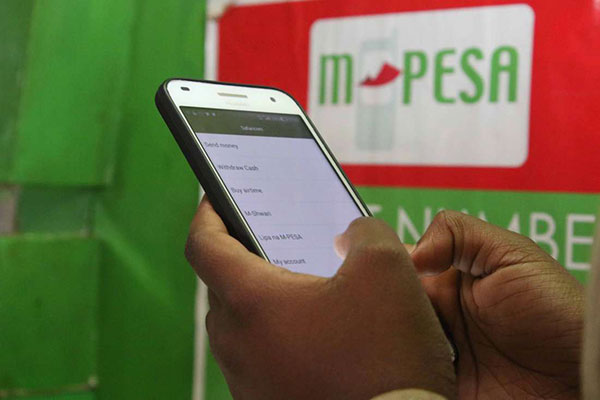Spike in mobile money transactions expected on presidential directive
By Steve Otieno
Use of mobile phones in making payments is expected to rise in the coming days after President Uhuru Kenyatta called on financial agencies to reduce transaction fees and encourage citizens to avoid handling physical cash in the wake of COVID-19 spread.
As a result, analysts now say those agencies will ride on the anticipated high volumes to increase their profit margins which declined in the first month of the year, and a good number of providers could lower their operation costs in a bid to drive traffic their way.
“I do see that happening and my opinion is that many providers might actually reduce their transaction costs because volumes will without doubt increase,” says Peter Macharia, a banker and a financial expert, in a Telephone interview, adding that, such firms will also use the opportunity to market some of the not so popular digital fund transfers products among Kenyans like pay pal and RTGS among others.
The Sunday evening plea by Mr. Kenyatta to financial agencies is meant to contain the virus spread, after Kenya confirmed its first case of coronavirus on March 13 with further two cases made public on Sunday.
Digital financial providers now look certain to benefit from the pandemic that has not only hit hard the local financial system – which saw trading at the Nairobi Securities Exchange (NSE) on Friday halt after benchmark index plunged at 5 per cent, but also the global markets that continue to plummet.
That tipping point will happen almost instantaneously, according to Managing Director of Gulf African Bank, Abdalla Abdulkhalik, when the number of customers regularly using branches will be overtaken by those using apps and popular medium like Mpesa and mobile (bank) money for funds transfers.
“We expect to see that drift almost straightway beginning today (Monday) and that goes without saying,” said Abdalla, who believes the trend will continue in the conceivable future owing to the uncertainty of the deadly Covid-19.
Phone banking, internet banking and mobile apps are all expected to witness increased activities and thus reducing the number of visits and dealings people make to a physical branch as well as people coming to contact with physical cash – a channel medics say is a major contributor to the spread of the virus.
Latest figures by the Central Bank of Kenya (CBK) shows that the use of mobile phones in making payments declined in the month of January on the back of low circulation of cash in the economy, that is however, now likely to rally when the institution will be releasing new figures for the month of February mid next month.
In January this year, the number of mobile payment deals dropped by 4.04 million to 150.204 million in, down from 154.243 million in the review period, while payment deals worth Sh371.9 billion were completed through mobile phones during the month, a slight 1.05 percent rise from Sh368.02 billion a year earlier.
Mobile and internet banking is already widespread in the country and unlike during the early years when the mobile money platforms were largely used for person-to-person (P2P) cash transfers, they are now used as channels for initiating and cutting relatively low-value business deals such as purchases as well as processing instant short-term loans being taken up by increasingly growing digital lenders.



